Martha Moxley's brother on Skakel's overturned conviction
John Moxley joins 'The Story' with reaction to the Connecticut court's decision to order a new murder trial for Kennedy cousin Michael Skakel, first found guilty of Martha's murder in 1975.
Six years after his murder conviction in the death of 15-year-old Martha Moxley was overturned, Michael Skakel is suing his Connecticut hometown and investigators for allegedly withholding evidence that may have spared him from serving 11 years in jail.
The Kennedy family cousin, nephew to Robert F. Kennedy's widow, Ethel Skakel Kennedy, named as defendants the town of Greenwich, the Greenwich Police Department, the Connecticut State Attorney's Office and the detective who headed the 1975 probe into Moxley's bludgeoning death.
"For a sensationalized ‘Kennedy Cousin’ murder he didn’t commit, he was given 11 and a half years of his life in jail," his attorney, Stephan Seeger, told the local newspaper Greenwich Time.
NORTHEASTERN CONNECTICUT HOUSE FIRE KILLS 4 CHILDREN, OFFICIALS SAY
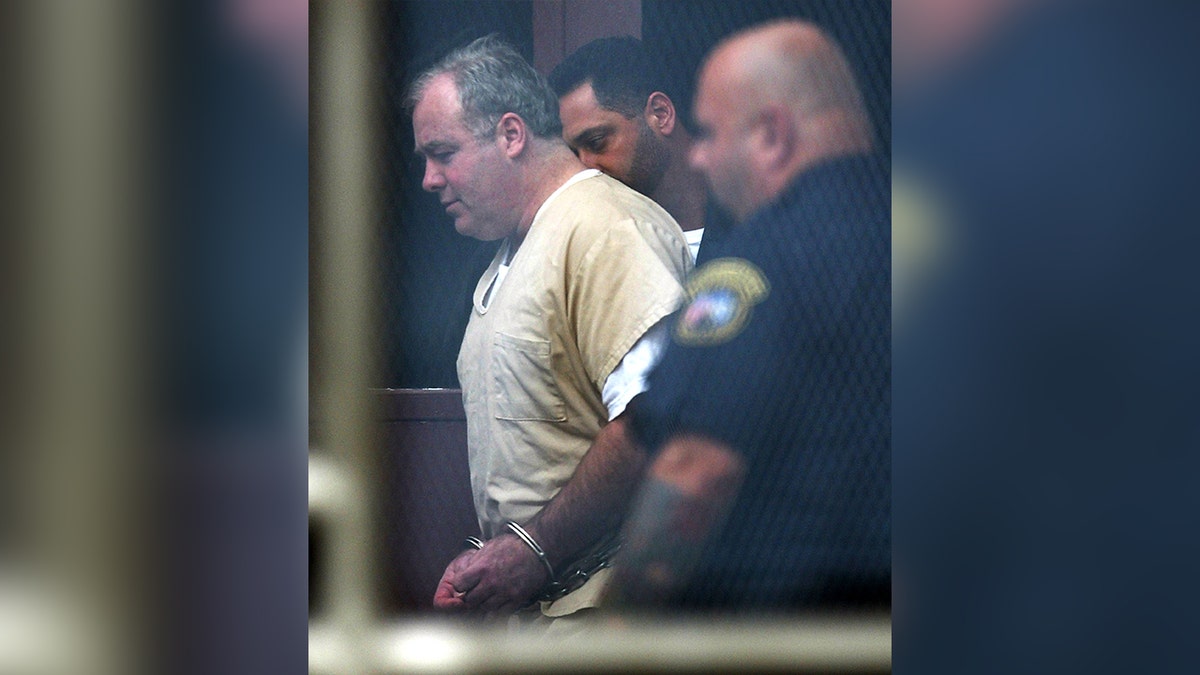
Michael Skakel, pictured leaving a Norwalk court in 2002, was convicted that year for the 1975 bludgeoning death of Martha Moxley, 15. (Beth Keiser-Pool/Getty Images)
"Try picking up where you left off under that dark cloud," the lawyer told the local outlet. "Of course, it’s not something he can walk away from – why would anybody? It’s time the untold stories on the road to wrongful conviction are heard, and it’s time those responsible are held accountable. That’s what the civil rights case is all about."
The Connecticut Supreme Court overturned Skakel's 2002 conviction in 2018 after he had served more than 11 years in prison on the grounds his attorney failed to present evidence of an alibi on his behalf. A state prosecutor announced two years later that Skakel would not be retried and that charges against him had been dropped, according to The Associated Press.
GYPSY ROSE BLANCHARD BECOMES OVERNIGHT INTERNET STAR AFTER PRISON RELEASE
At the time, the Hartford Courant reported, the prosecutor said that only 17 of 51 potential witnesses in the case were still alive to take the stand.
Skakel's lawsuit alleges evidence was "intentionally withheld from (Skakel) and his trial attorneys, all in spite of the same having been requested by the defense in the discovery process or it having been subject to other legally binding obligations to turn the same over to the Plaintiff’s defense team."
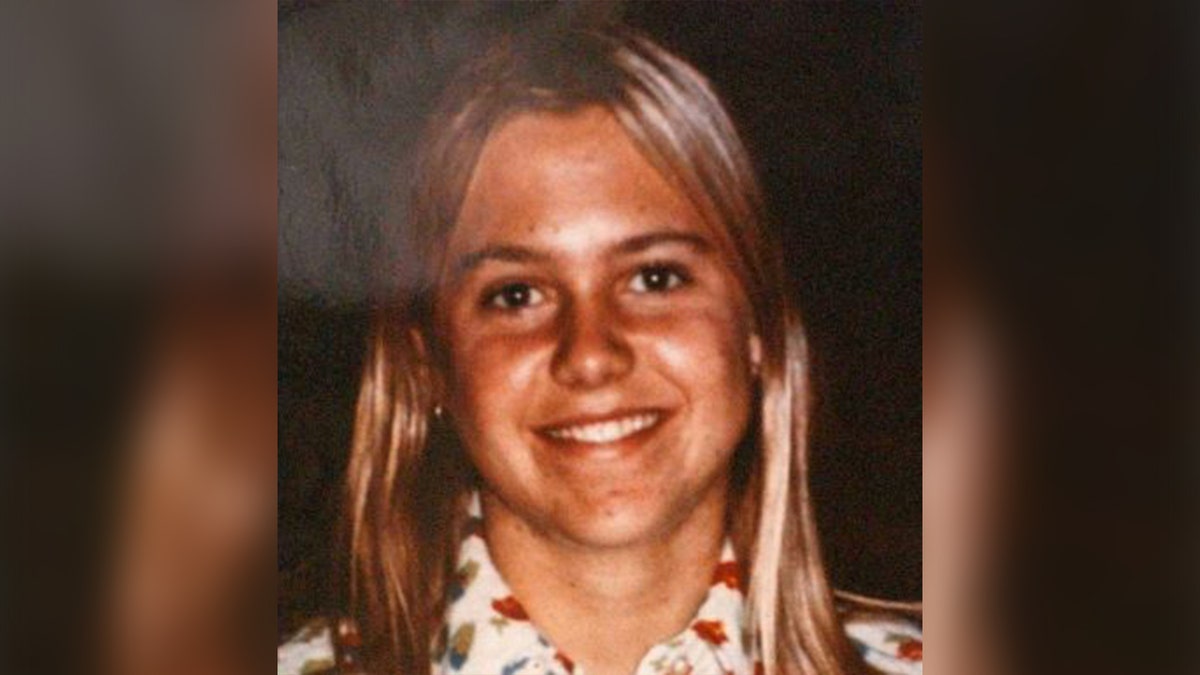
Martha Moxley was found dead Oct. 31, 1975, after going out on mischief night the evening before. An autopsy revealed she had been bludgeoned with a club. The weapon, found at the crime scene, was traced to the Skakel household. (Getty Images)
Skakel and Moxley were both 15 and lived across the street from each other in 1975. On Oct. 30 of that year, Moxley joined up with a group of friends to pull pranks on mischief night.
According to friends, Moxley flirted with and kissed Thomas Skakel, Michael's older brother, that night. Around 9:30 that evening, she and the older brother were seen "falling together behind the fence" near the Skakel family pool, the Hartford Courant reported.
'MAY DECEMBER' MOVIE ON MARY KAY LETOURNEAU 'OFFENDED' STUDENT LOVER VILI FUALAAU
The next day, her body was recovered under a tree in her backyard. Her pants and underwear were pulled down around her ankles, Time magazine reported, and pieces of an iron golf club surrounded her body.
An autopsy determined Moxley had been beaten and stabbed to death with the instrument. The golf club was traced to the Skakel home.
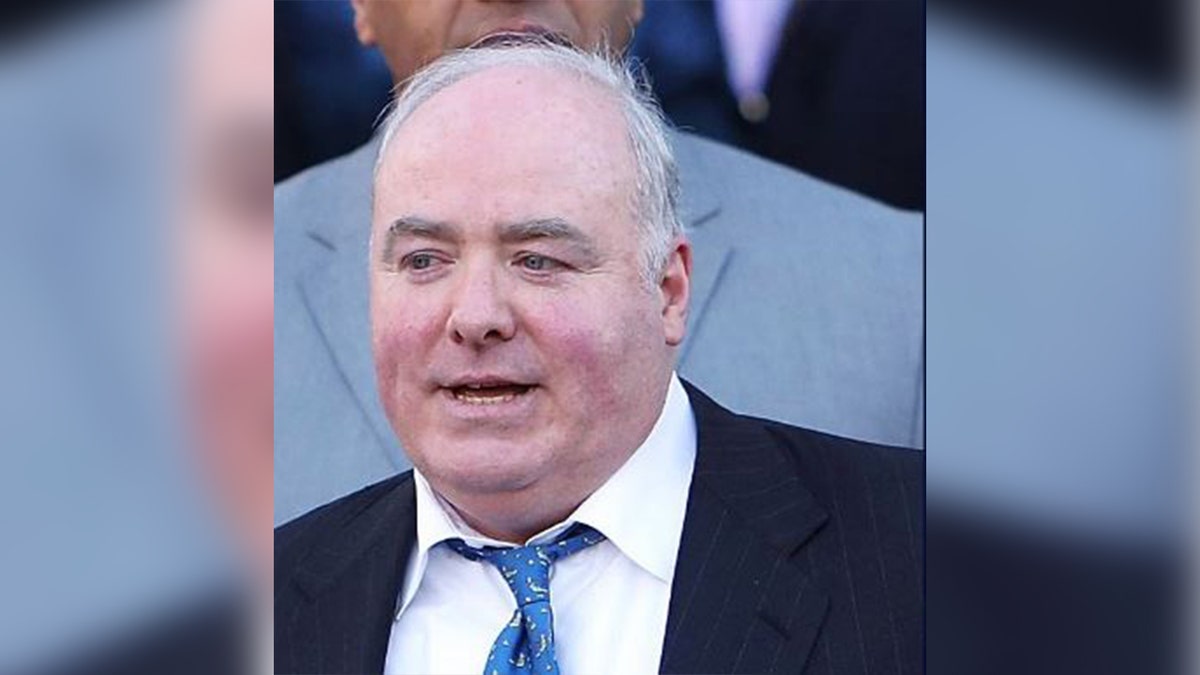
Michael Skakel, pictured, is suing the town of Greenwich, the Greenwich Police Department and lead investigator Frank Garr for allegedly omitting evidence that would have supported his legal defense. (Spencer Platt for Getty Images)
Initially, the older brother was the prime suspect in Moxley's murder. Kenneth Littleton, a live-in tutor for the Skakel family, was investigated next, Vanity Fair reported.
Among the withheld evidence, according to the complaint obtained by Fox News Digital, were composite sketches from an eyewitness that did not resemble Skakel and various psychological profiles of prospective suspects, including Skakel's older brother.
Lie detector test results from Littleton and Thomas that indicated they were being untruthful were also withheld from the defense at the time of Skakel's trial, according to the lawsuit.
MANHUNT UNDERWAY FOR 'PERSON OF INTEREST' IN INDIANA LAWYER'S DISAPPEARANCE AFTER CROSS-COUNTRY TRIP
Two hairs found near or on Moxley's body had African American and Asian characteristics, the lawsuit said. Burton Tinsely and Adolph Hasbrouck, who had those ethnic characteristics themselves, were present on the night of the murder.
Witnesses allegedly told detectives both teens had crushes on Moxley and expressed intentions to go "caveman" on somebody. Those interviews were also allegedly withheld from Skakel's defense.
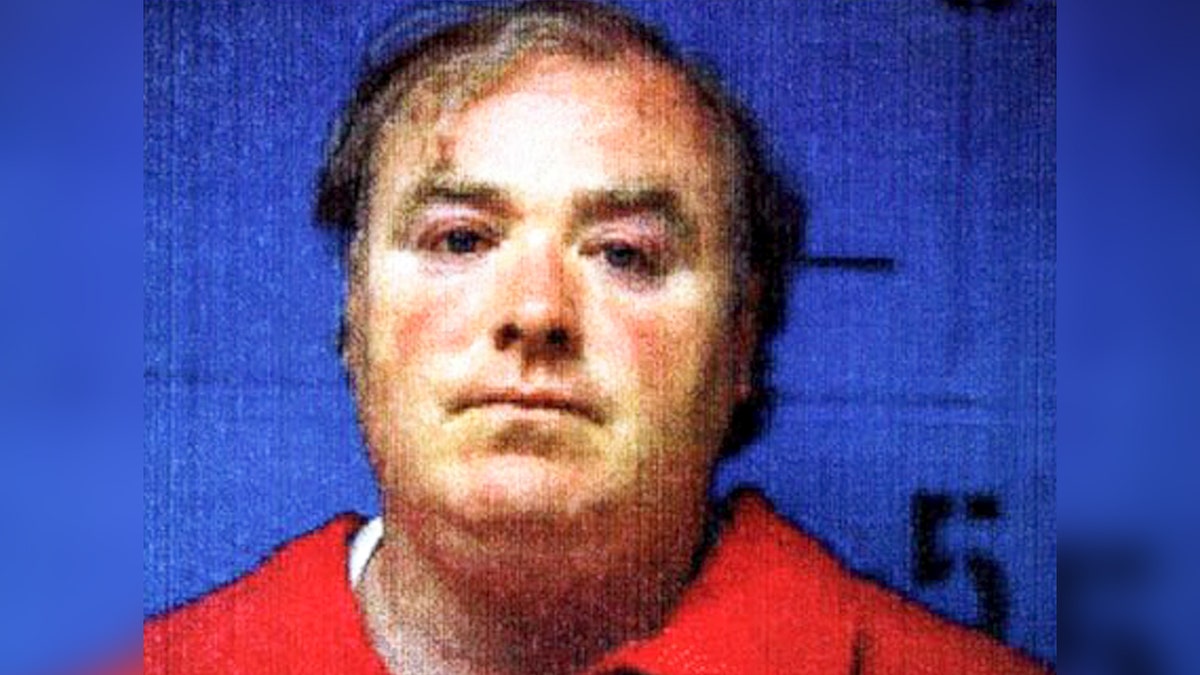
Michael Skakel was reconsidered as a suspect 16 years after Moxley's murder, and a warrant was issued for his arrest in 2000. (Getty Images)
Although his story changed several times throughout the investigation, according to TruTV, Michael Skakel claimed he had been peeping into windows and masturbating that evening between 11:30 p.m. and 12:30 a.m.
The case went cold for decades until Skakel was reconsidered as a suspect in 1991, according to Oxygen.com. His arrest warrant was issued in January 2000.
BRITTANEE DREXEL MURDER CASE: SC RESORT SAYS SHE WAS NEVER REGISTERED AS GUEST WHEN SHE VANISHED
Garr and police reporter Len Levitt would later coauthor a book about the case, published in 2004.
Skakel's lawsuit said the book, "Conviction, Solving the Moxley Murder," featured repeated praise of Garr's "leadership in pursuing and securing [Skakel's] conviction ... in which Garr was confirmed to have collaborated as a fact checker.
"Garr, while the lead investigator in the case, had a pecuniary interest in co-authoring the book with Len Levitt via book sales and the prospect of receiving fifty-percent of profits for a movie based upon the book," the suit states.
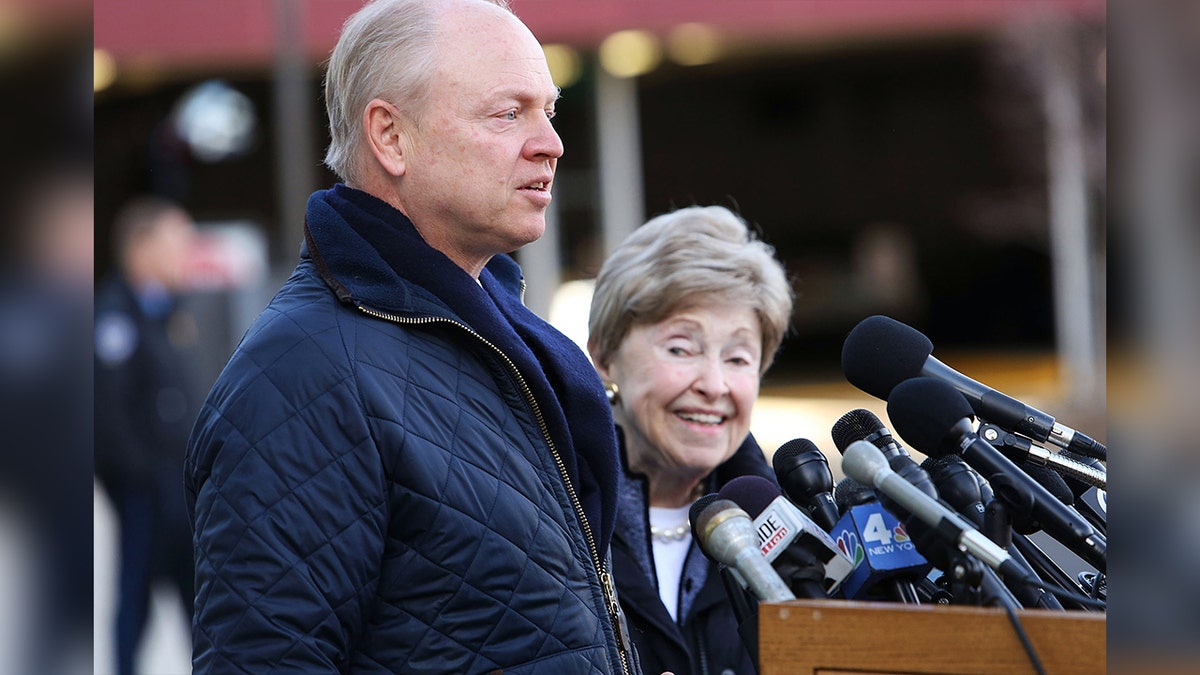
John Moxley, Martha Moxley's brother, is pictured alongside their mother Dorthy Moxley, speaking with reporters outside a Stamford courthouse in 2013. In a 2019 interview, John Moxley cast doubt on Michael Skakel's claims of innocence. (Spencer Platt/Getty Images)
The suit alleges Garr, who already "held a deep antipathy toward [Skakel] and the Skakel family," was rushed in his investigation by the publication of an earlier book on the case. Mark Fuhrman, author of "Murder in Greenwich," named Skakel as Moxley's killer in the 2000 publication.
"Garr was resentful of Mark Fuhrman who was trumpeted as the man who solved the murder by implicating [Skakel] in his book ... when Garr believed he should have been granted recognition," the lawsuit says.
Garr allegedly bribed other teens at the youth facility where Skakel was incarcerated after his arrest, promising one a reward for "testifying that ... [Skakel] may have blacked out during the evening of the murder" and persuading another — a now-deceased heroin addict — to testify despite his "complete lack of credibility," according to the lawsuit.
He also allegedly threatened another potential witness, saying that person's "life would be made difficult" if the person didn't testify, according to the lawsuit.
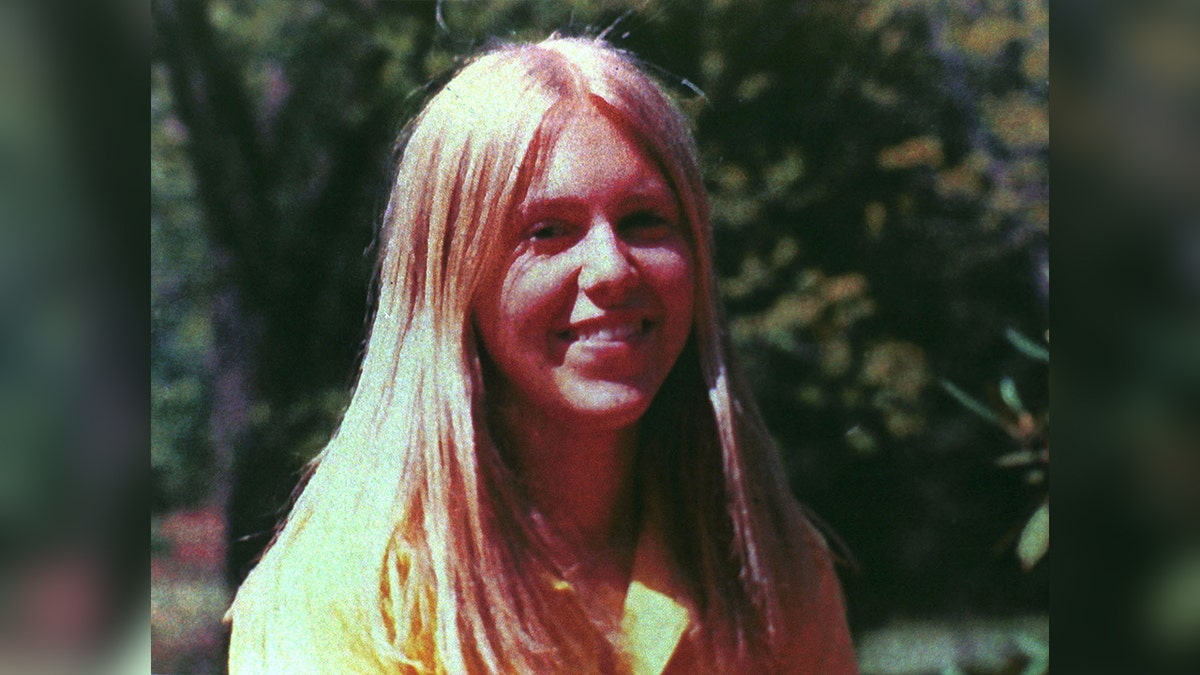
Martha Moxley (Erik Freeland/Corbis via Getty Images)
"As a direct and proximate result of said wrongful and malicious prosecution against him, plaintiff has been caused to suffer and sustain injuries and losses," the complaint said.
Fox News Digital could not reach Garr or John Moxley, Martha Moxley's brother, for comment on Skakel's lawsuit.
CLICK HERE TO GET THE FOX NEWS APP
Moxley's murder still remains unsolved. In a 2019 interview, her brother said he still believes Skakel is her killer.
"Just because he’s out on the street doesn’t mean what we know isn’t right," John Moxley said in "Murder and Justice: The Case of Martha Moxley," a three-part documentary on his sister's life and death.
"Where we are now is that it’s all about judges and technicalities. It’s not about who killed Martha. At this point, him being out doesn’t change anything for me. And he’ll be in prison for the rest of his life regardless of where he’s walking the streets. He will be in his own prison for the rest of his days."










































